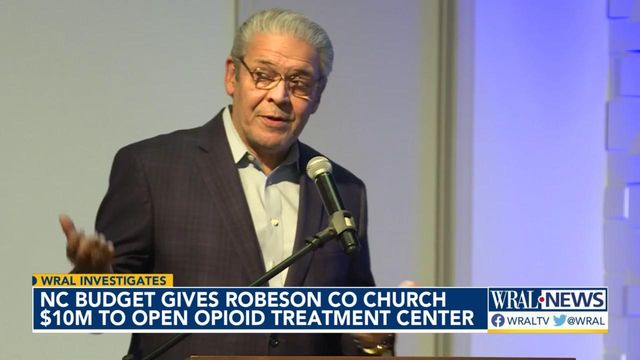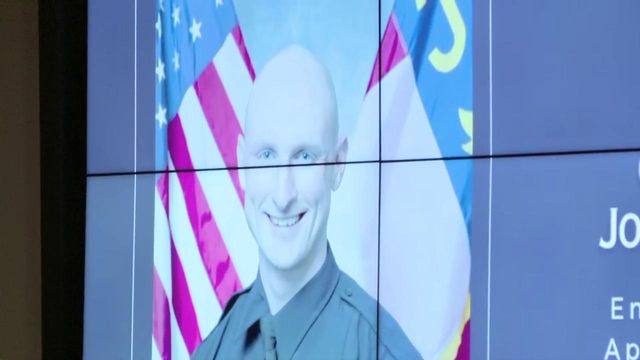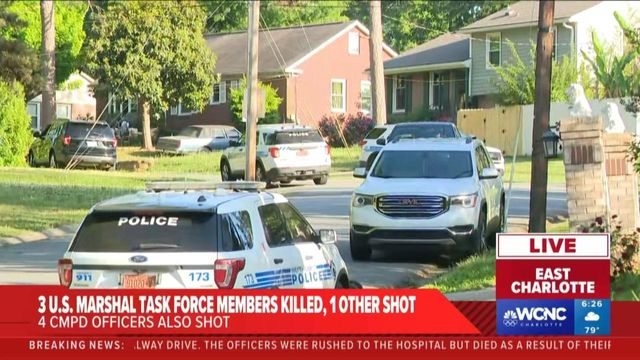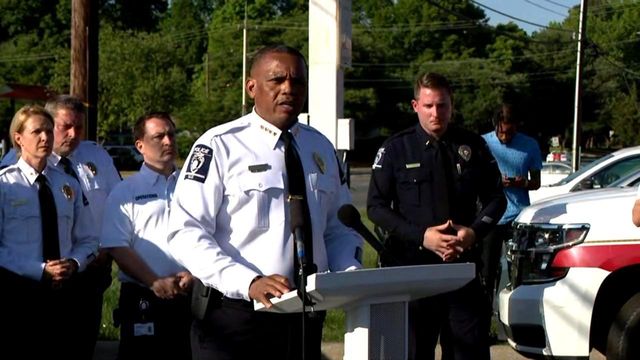Church, nonprofit with zero track record of providing drug treatment awarded $10 mil from state to combat opioid crisis
Last year marked the deadliest year in the country for opioid-related overdoses after more than 100,000 Americans died.
North Carolina lawmakers have allocated more than $16 million in funding to combat the opioid crisis in the state.
A significant portion of the money went to one location - a nonprofit organization called Hope Alive. The state allocated $10 million, over two years, for a new treatment center in Robeson County. The allocation comes despite Hope Alive being a relatively young organization without any track record of providing drug treatment.
“We really didn't have a whole lot of other options out there locally for folks that were willing to do this,” said Sen. Danny Britt, R-Robeson. “Hope Alive ministries was — but we needed them to work with people who have had clinically proven methods.”
State filings showed the organization was founded in July 2020 and the address was the same as a church in a strip mall off of Interstate 95 in Lumberton, called Greater Hope International Church — a nondenominational institution run by senior pastor Ronald Barnes.
“We're at a time now when it's time to stop talking and to step up and do something about it,” said Barnes during a town hall the church hosted about the county’s opioid crisis.
The opioid crisis has seriously affected the area. The county’s sheriff told WRAL News that most of the crimes in the county are related to drugs in some way.
Data from state Department of Health and Human Services shows Robeson’s emergency department visits following an overdose is the highest in the state and nearly three times the state’s rate.
Joint Conference Committee Report on the Current Operations Appropriations Act of 2021
As of now, the county doesn’t have a long-term, in-patient facility.
“The opioid epidemic is devastating Robeson County and counties around [here],” Britt said. “Having an inpatient treatment facility here is going to be something that I believe would be life changing, life altering to many people in this county.”
Still, health care providers are questioning how and why so much funding went to one organization without any background in providing this sort of treatment.
“It doesn't seem like there's been a lot of transparency and how the funding has been distributed to these different programs,” said Dr. Jamie Carter, a primary care and addiction medicine provider with Duke Health.
The decision making process
Over the last several years, more attention has been on these closed-door decisions made by legislators.
Britt told WRAL News during a phone call that he was approached by a woman who is a member of Hope Alive and part of the county’s reintegration program which helps those who have been released from prison find jobs and housing.
The representative said there were some early conversations about working with the Lumbee tribe but they didn’t show interest.
Additionally, Britt said the local hospital was also being merged with the UNC Health system at the time these discussions were happening so they weren’t willing to enter into any agreements, which left with few options.
When asked about his relationship with Barnes, Britt says he hasn’t worked directly with the pastor. WRAL News filed a records request with his office for emails and texts which mention the organization and any communication between the two but it hasn’t been filled.
Britt also wasn’t aware of Barnes’ criminal history. WRAL found records from Virginia between 1992 to 2004 that show Barnes pleaded guilty to at least seven counts of embezzlement, at least two of which were from car dealerships. He served time for his convictions.
“I had very little dealings with Ron Barnes so no, I was not aware of that,” Britt said.
Britt says he isn’t concerned about the pastor overseeing these funds.
“Statistics show, anybody who has not committed in the last 10 years is not as likely to commit as anyone who ever has never committed before in their life,” said Britt, who, in addition to being an elected official, runs his own law firm.
“I'm a firm believer that people make mistakes and people can redeem themselves and turn themselves around and turn their life around. I don't think that Pastor Barnes would be an exception to that rule," he added.
Hope Alive was willing to step up and accept the money but they won’t be running the actual site, according to both Barnes and Britt.
“There are a lot of faith-based rehab facilities but we also need the clinically based methods as well,” Britt explains.
The local consortium will be helping with the clinical methods, Britt said. Providers from the Robeson County Healthcare Corporation as well as UNC Health Southeastern will be playing a role in treating people with substance use disorder.
WRAL reached out to Barnes, the organization’s leader, multiple times, asking for an interview and more details about the facility. He didn’t get back to WRAL and said in a sermon on Sunday that he wouldn’t be doing an interview with WRAL.
The church, however, did post on Facebook that day, providing information about how it plans on using the funding.
“The strategy is to create a recovery drop-in center and safe community housing options for those in recovery,” Barnes’ church - Greater Hope International - posted on their Facebook page. “Hope Alive is the lead organization in managing the grant funding and has sought the expertise of various community stakeholders. We intend for this project to incorporate a community partnership model and will rely on the expertise and resources that the Robeson RCORP Consortium has to offer.”
The plan
Despite Barnes’ refusal to sit down with WRAL for an interview, he did invite WRAL to attend a town hall meeting held at the church in December 2021. Local law enforcement leaders answered questions about the opioid crisis’ impact on the rural county.
Last year, there were about 366 emergency department visits for every 100,000 residents in the county. The state’s average for the year - 128.
To address the issue, Hope Alive plans on opening an 82 bed facility at 1165 W. Parkton Tobemory Road in Parkton, north of Lumberton. The plans are to transform a former nursing home, which has been shut down since 2017.
Neighbors in the area say they weren’t aware of the plans to convert the empty site to a drug rehabilitation center.
“It's needed because [drugs] are definitely out there and people need the help,” said Casey Avera, a mom of 5 who lives across the street. “It is definitely [un]nerving because it could be a great thing, but it could be very bad.”
While Avera says she hopes it is run “on high morals” since a church is taking over, doctors who work in the field are less optimistic about that.
“It's really unclear what kind of work they do what what training they have, what what expertise they bring,” said Carter, the Durham-based addiction expert. “It doesn't seem like they have the kind of medical background, in terms of bringing the standard-of-care, evidence-based medical treatment to the table for the patients who are going to be seeking treatment there.”
While Barnes said he believes the facility will open in the first three months of the year, Britt said he feels more confident that it’ll be operational in the spring.











